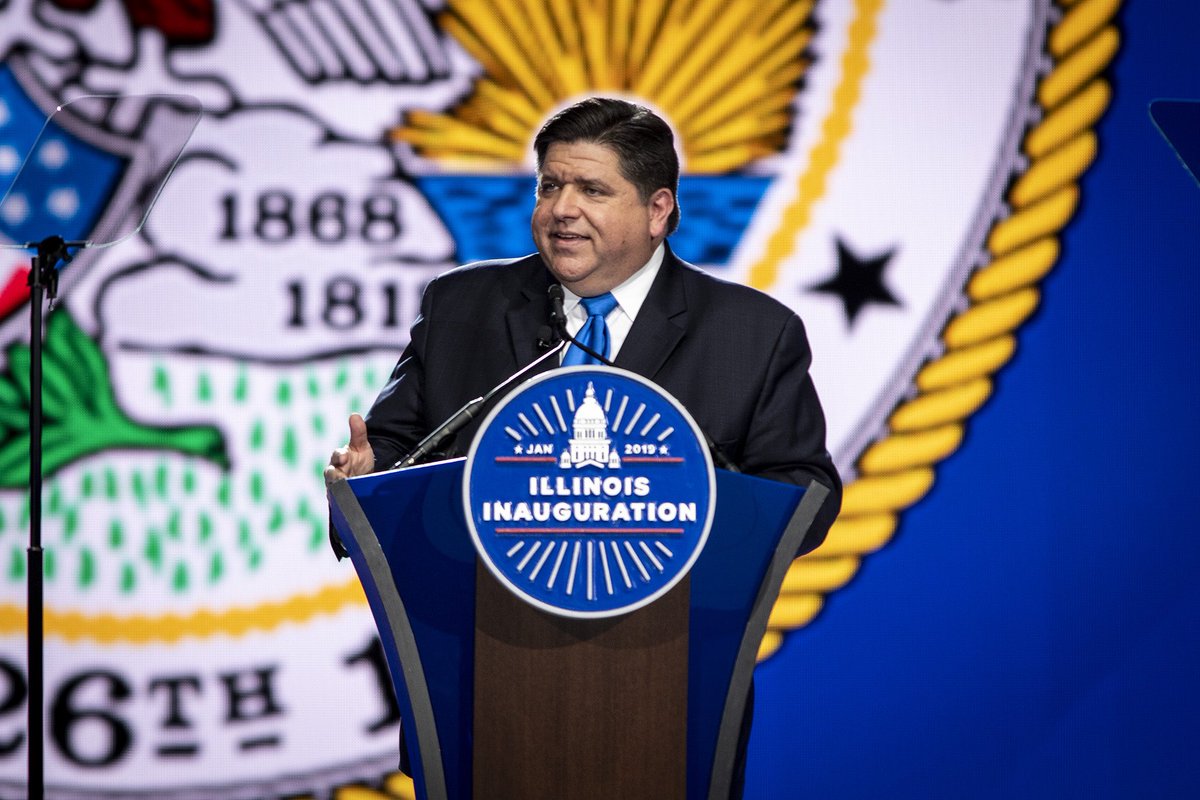News
Governor signs measure to hike Illinois minimum wage to $15

FILE: Today, I was sworn in as the 43rd governor of Illinois. This state has a bright future, and I am looking forward to taking on big challenges and working to improve the lives of all Illinoisans. (Photo: @JBPritzker/Twitter)
SPRINGFIELD, Ill. – Illinois Gov. J.B. Pritzker signed a measure Tuesday gradually hiking the statewide minimum wage to $15 an hour by 2025, an early victory for the Democrat on the eve of his first annual budget proposal.
Fulfilling one of his top campaign promises just five weeks into the job, Pritzker declared that Illinois “welcomes working families, setting a high standard for workers’ rights, economic opportunity and economic justice.”
Pritzker signed the law at the Governor’s Mansion, packed with supporters in a party-like atmosphere. On Wednesday, he is scheduled to deliver a proposed annual budget amid forecasts that the financially troubled state faces a $3.2 billion deficit in the fiscal year that begins July 1.
Illinois employs thousands of minimum-wage workers, many at universities and health care institutions funded by Medicaid. The new law means the state would have to pay more, including $230 million in additional costs in 2021 when the hourly pay floor rises to $10.
Illinois is on track to be the first state in the Midwest to push its base wage to $15. The state’s pay floor, currently $8.25, increases to $9.25 on Jan. 1; it jump to $10 on July 1, 2020, and then increases $1 each Jan. 1 until 2025.
“It was just a few years ago that a $15-an-hour minimum wage seemed like a pipe dream,” said Rep. Will Guzzardi, a Chicago Democrat who sponsored the measure on House floor. “It has gone in that time from a bold ideal to a national movement to today, it becomes the law of the land in the state of Illinois.”
Business groups opposed the plan. They wanted a longer phase-in and a regionalized approach with lower minimum wage levels for areas outside Chicago. Chicago has its own minimum wage, which increases to $13 in July.
“The right to a fair wage does not end at Chicago’s border,” Pritzker said. “Workers in East St. Louis, in Peoria, and in Springfield deserve that same fair pay.”
Pritzker noted there are payroll tax credits in the law to ease the transition for employers.
Ieshia Townsend, who works at a McDonald’s restaurant on Chicago’s South Side and is a member of the Fight for $15 movement, said she supplements the $12-an-hour she currently makes with twao other jobs to support her two sons.
“Millions of workers have worked hard to get paid enough by giant corporations like McDonald’s to provide for our families,” Townsend said. “I don’t get paid enough to meet the requirements for my children. … I should be able to stand on my two feet and provide for my children without food stamps or Medicaid.”
–––
The legislation is SB1 .





















